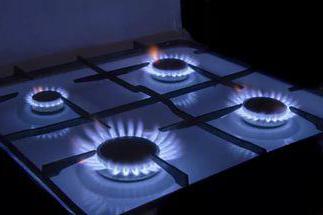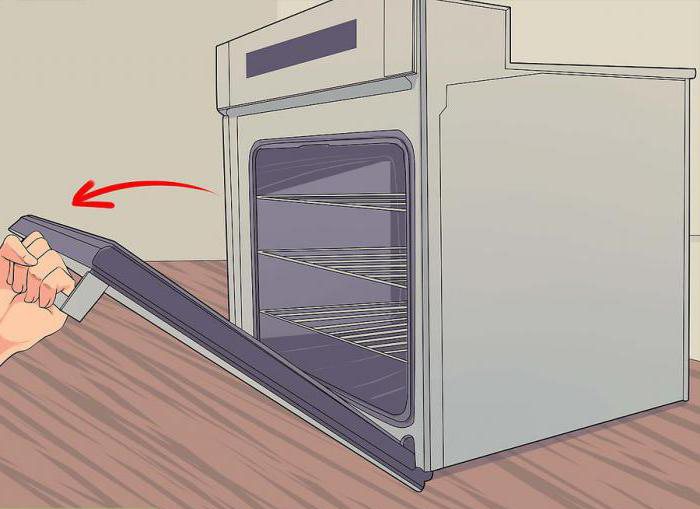Today it is already difficult to imagine an established life without the use of gas. Thanks to this natural type of fuel, it is warm in our homes, hot water flows from the taps , there is the possibility of cooking. However, it is gas supply in urban homes that is one of the most dangerous communal services, since even a slight gas leak can lead not only to property damage, but also to many loss of life.
According to statistics, the main cause of accidents is the unsatisfactory state of gas utilities and devices. Timely and regular maintenance of gas equipment in an apartment building, as well as strict observance of the rules for its operation, are the two most effective ways to avoid irreparable consequences.
VDGO professional service - intrusive service or necessary security measures
Any apartment is equipped with one or more varieties of domestic gas equipment (VDGO), for example, a gas stove, water heater, heating boiler. Convenience and accessibility of “blue fuel” have become familiar to everyone, and many people sometimes forget that it is a source of danger, and therefore requires careful attention. Older people will probably still remember how in Soviet times gas inspectors regularly visited customers, checked their health, and carried out maintenance of gas equipment in an apartment building. The masters did not take money for this service, since its cost was already laid down in the gas tariff.

Such a scheme was used until 2006, after which the cost of maintenance was excluded from the total amount of gas supply charges. Since then, the installation and maintenance of gas equipment in an apartment building has been carried out at a separate rate and only on the basis of agreements concluded with residents. This innovation was perceived negatively by most consumers, since it looked like an attempt to impose additional paid services on the part of service companies. In this regard, many refused to enter into a gas equipment service agreement in an apartment building. The absence of contracts has led to an almost complete cessation of routine inspections of the VDGO and, as a result, an increase in the incidence of explosions in residential buildings caused by leakage of domestic gas.
Ensuring the safety of gas consumers at the state level
In connection with the mass refusal of citizens to voluntarily conclude contracts for servicing gas equipment in an apartment building, in 2008 the government adopted Resolution No. 549, according to which the existence of an agreement became mandatory. In the absence of this document, the gas supplier has the right to suspend its supply, having previously notified the consumer. Since the supply of “blue fuel” to gas equipment that has not passed an official examination is unacceptable, therefore, sanctions can be applied even to consumers who make full and timely payments for gas consumed.
Gas supply can be restored only after the agreement on maintenance of gas equipment in the apartment building is concluded, and the responsible organization will check its condition. However, you will have to pay for reconnecting.
What is a contract?
The contract contains requirements for the safe maintenance and operation of the VDGO and VKGO, the responsibilities of the specialized service organization, the list and schedule of work, as well as the cost of the services provided are prescribed.
In addition, the civil legislation of the Russian Federation requires the mandatory addition of additional information and conditions to the document, including:
- date of conclusion of the contract;
- the name and details of the specialized organization that will perform the maintenance of gas equipment in the apartment building;
- information about the customer;
- the address of the serviced object;
- full list of gas equipment;
- terms of payment by homeowners for the services provided.
Who should conclude a contract
The obligation to conclude a contract for the maintenance of gas equipment in an apartment building is laid down by the law on the following parties:
- The initiator of a contract with a specialized company for the maintenance of internal gas communications and equipment in an apartment building should be an organization, partnership or cooperative that manages the common property of residents. The common property of the residents is: a facade gas pipeline and a disconnecting device, an inlet gas pipeline including risers and part of the gas pipelines in apartments located before the disconnecting devices (gas taps).

- The owner of the apartment in which the gas appliances are located is obligated to conclude the contract for servicing the in-apartment GO, or he can entrust this to the organization that manages the common property of citizens living in this apartment building. In addition, a group of residents has the right to delegate their authority to sign an agreement to one of the neighbors who own the housing in this house or the managing organization. In this case, a general meeting of all residents of the apartment building must be held beforehand, within the framework of which a unanimous decision will be made on the granting of authority to a particular person.
Who is responsible for the maintenance of gas equipment
The rules for servicing gas equipment in apartment buildings clearly define who, how and when should conduct these events. So, technical, emergency dispatch services and repairs of VDGO and VKGO are entitled to be carried out only by specialized companies - gas distribution organizations that have access to this activity established by the legislation of the Russian Federation. The requirements for companies servicing gas equipment in an apartment building are determined by the rules approved by the federal service responsible for environmental, technological and nuclear supervision.
Responsibilities of the Supervisory Organization
A set of measures involving the maintenance of gas equipment in an apartment building:
- checking the condition of the coating layer of gas pipes and the quality of their fasteners
- bypass and visual control of external gas communications;
- inspection of the integrity of cases in the external and internal structures of buildings through which gas pipes pass;
- tightness control of fittings and gas pipelines using special devices or soap emulsions;
- verification of gas pipelines and gas -powered equipment installation for compliance with regulatory requirements;
- performance testing and lubrication of shutoff valves (taps, gate valves) installed on gas pipelines;
- replacement of sealing glands (if necessary);
- traction control in ventilation and smoke channels;
- checking the presence of the necessary air flow for combustion;
- quality control of exhaust pipe connections with flue ducts, etc.

The contract prescribes a complete list of work performed. Services not included in this list relate to individual repair work performed at the request of the consumer. In the event of failure of the equipment elements and the need for their replacement or repair, the subscriber shall pay for the work and spare parts.
The user should also remember that self-modification of the design of gas pipelines and the replacement of any gas-using equipment is strictly prohibited. Only specialists of an accredited organization are entitled to perform these works. Naturally, all these operations are paid. In addition to the diagnostic and repair measures stipulated by the contract, the responsible organization must provide round-the-clock emergency dispatch support.
Regulations for gas equipment maintenance
According to the established requirements, maintenance activities for civil defense should be carried out according to the following schedule:
- audit of aboveground and underground gas pipelines - once a year;
- inspection of the general condition of gas pipelines - once every 3 years;
- maintenance of domestic gas equipment (stoves, water heaters, boilers, columns) - once every 3 years, unless otherwise specified by the manufacturer of this equipment;
- maintenance of group balloon installations for liquefied gas included in the VDGO - 1 time in 3 months.
The cost of services under the contract
Prices for services are prescribed in the contract for maintenance of gas equipment, however, their total cost is calculated individually for each consumer. When forming the final amount, technical characteristics and the amount of equipment installed in a particular apartment are taken into account.
Prices are subject to change, so consumers are advised to periodically visit the official website of the responsible gas distribution company, where they can find the current price in the "Information for Subscribers" section.
Payment Procedure
The customer shall pay the repair and connection fees for the in-house or in-house GO at the rates established by the executing company, which were in effect on the date of submission of the corresponding application. Money must be transferred no later than the date provided for in the service contract. If the terms of payment are not set in the contract, payment is due no later than the 10th day of the next month.
Conclusion
Unfortunately, despite all the security measures taken by the state, tragic accidents due to a gas explosion still take place. This precious natural source of energy “does not forgive” an irresponsible attitude, therefore, each consumer must strictly observe the rules for the operation of devices, control their working life and not violate the rules for their maintenance. All these measures will become the key to personal and public safety.